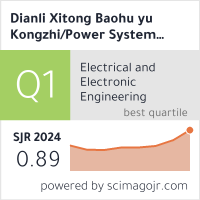CHALLENGES AND TRENDS IN THE USE OF ARTIFICIAL INTELLIGENCE IN HIGHER EDUCATION, IMPACTS ON EDUCATIONAL QUALITY AND THE LEARNING EXPERIENCE: A BIBLIOMETRIC APPROACH
Keywords:
Artificial Intelligence, Higher Education, Educational Quality, Learning Experience, Bibliometrics, PythonAbstract
The emergence of artificial intelligence (AI) in educational systems has radically transformed the dynamics of learning, assessment, and pedagogical management in higher education. In recent decades, the use of intelligent technologies has shifted from a futuristic promise to a tangible reality that directly influences the educational experience of both instructors and students. This study aims to answer the following question: Does co-occurrence network analysis allow for the identification of the challenges associated with the use of artificial intelligence in higher education and its impact on educational quality and the learning experience? To address this, a bibliometric co-occurrence network analysis was conducted on 1,642 conceptual terms proposed by 1,190 authors across 273 Q1-ranked journal articles. As a result, four main clusters were identified, each concentrating the majority of the conceptual terms: Cluster 1: Educational transformation and diversity in clinical environments mediated by artificial intelligence; Cluster 2: Language learning and emotional self-regulation supported by conversational AI; Cluster 3: Immersive and gamified environments for pedagogical innovation mediated by AI; Cluster 4: Learning analytics and intelligent algorithms applied to educational innovation in scientific disciplines. The findings highlight emerging research gaps that scholars in these areas may explore through advanced quantitative methodologies, such as factorial methods and structural equation modeling, as these clusters have the potential to evolve into mature constructs depending on their application





